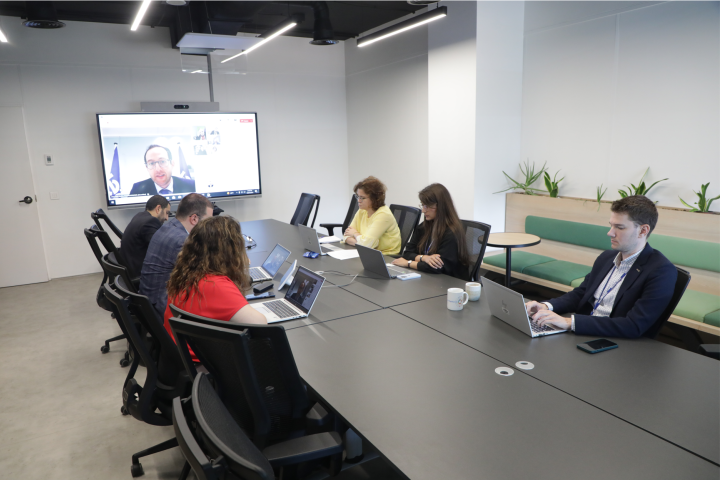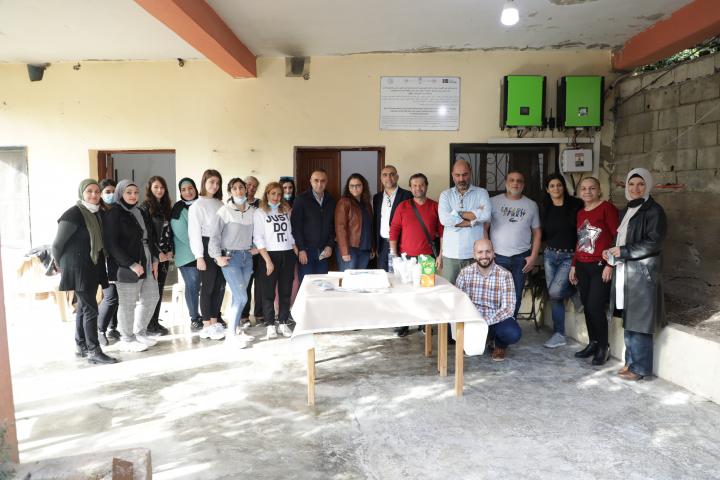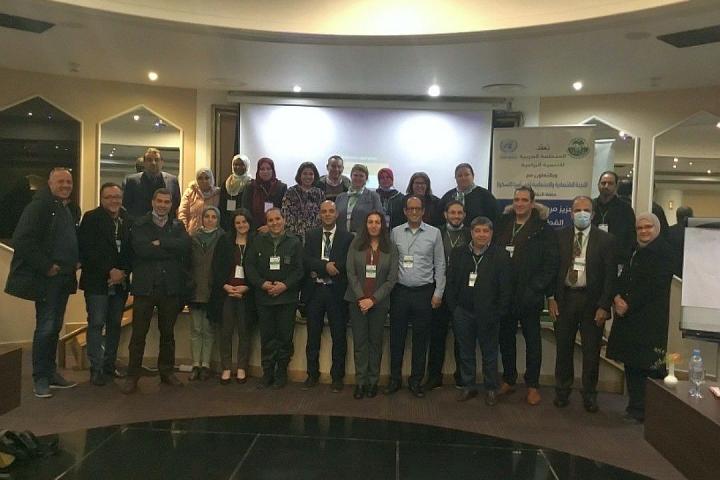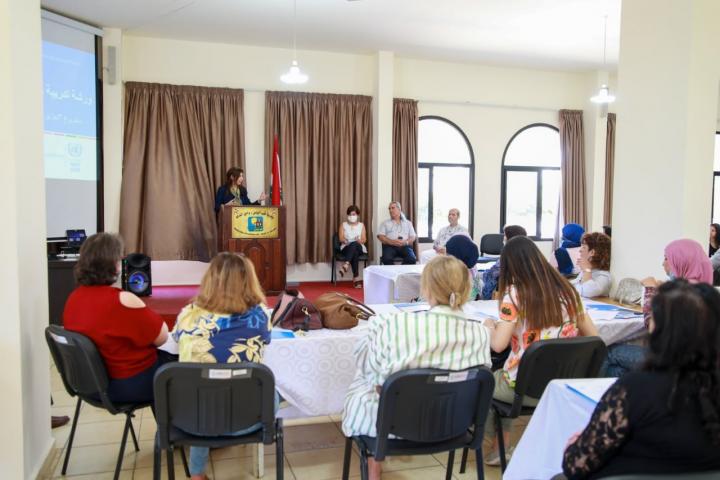Cairo, 16 Oct 2011 (UN Information Service) — The UN Economic and Social Commission for Western Asia (ESCWA) today opened the Arab Regional Preparatory Meeting for the United Nations Conference on Sustainable Development (Rio +20), which will be held in Rio De Janeiro, Brazil, 4-6 June 2012. The 16-17 Oct meeting is held at the League of Arab States (LAS) headquarters in Cairo and was organized in cooperation with LAS and the UN Environment Programme (UNEP). UN Under-Secretary-General and ESCWA Executive Secretary Rima Khalaf delivered an opening statement in which she said this meeting is held amid critical global and regional state of affairs, with harbingers of a new global financial crisis looming. These crises, Khalaf said, result in undermining the efforts of our countries to achieve sustainable development, fight poverty and improve living standards of citizens. The regional commission’s chief said it is “regrettable that the way of addressing these crises reflects the existing disequilibrium in the balances of powers in international relations, as institutional frameworks resorted to in these crises lack in democracy and transparency.” Solutions are pursued in closed rooms and exclusively by some powers, and then they would be imposed on the entire world community, Khalaf added. “This approach is no longer acceptable and cannot be adopted anymore as it proved to be futile in addressing many global challenges.” At the opening session, an Arab Youth Statement was read on behalf of members of the Arab Network for Environment and of the Arab Union for Youth and Development. It pointed out that underway Arab revolutions were the best support for effective sustainable development in the Arab world. It emphasized that development will only be attained through hard work by Arab youth harnessing new technologies and that upholding social justice was a precondition to accept any initiatives and propositions emerging from the Rio+20 Conference. The statement also called for the involvement of youth in all national committees on sustainable development. For his part, Assistant Secretary General of LAS for Economic Affairs Mohammed Al-Tuwaijri, representing LAS Secretary General Nabil ElAraby, warned in his statement that economic and environmental problems will worsen further in 2012. He also lamented the status of education in the Arab world, arguing that without good education there will be no real sustainable development. “The Council of Arab Ministers Responsible for the Environment reiterated the right and sovereignty of Arab countries over their natural resources for the benefit of present and future generations,” said Al-Tuwaijri. He added that the Council has been giving significant attention to fending off attempts by some countries to exploit international environment conventions to achieve political and economic objectives. Egypt’s Permanent Representative to the UN Maged Abdelaziz said there were different views and perspectives regarding the “green economy,” cautioning against the use of such economy as a means to impose a one-size-fits-all development paradigm on all countries. “The green economy should not also become an excuse to put protectionist barriers that restrict free trade or turn into an alibi to shackle development aid with new conditions,” said the Egyptian diplomat who is also the Vice-chair of the Bureau for the Preparatory Process of Rio+20 representing the African Group. He added that green economy should neither be twisted into a “tool enabling corporations to control our natural resources” or a vehicle enabling developed countries to evade their obligations towards developing countries. Representative of UNEP Adel Abdelkader, for his part, said despite achievements in economic development domains, such as doubling the global Gross Domestic Product since 1992 and a relative decrease in poverty, key challenges remain and “new issues are even arising, such as the global economic crisis, climate change, food security, increasing natural disasters, and exacerbating conflicts and wars.” He added that ministries and bodies were created in the region to deal with the environment, but the integration and mainstreaming of institutional frameworks for economic and environmental development are not yet achieved in a viable fashion conducive to accelerated achievement of sustainable development. “Environmental institutions remain the weakest link in sustainable development pillars,” he concluded. In her statement, Executive Coordinator for Rio+20 Elizabeth Thompson said this meeting comes in conjunction with the Arab Spring and amid echoes of demands by the region’s youth for their rights of access to sustainable development. She noted that the purpose of this meeting is to renew political commitment to sustainable development and deal with the issue of what institutional framework best addresses sustainable development, as well as green economy and its relevance to poverty reduction. The meeting was organized to review progress made and gaps remaining in implementing the Sustainable Development Initiative in the Arab Region and the outcomes of major summits on sustainable development. It also aims at identifying new and emerging issues affecting progress towards sustainable development in the Arab region and examining green economy opportunities and challenges facing the Arab region in the context of sustainable development and poverty eradication. The two-day meeting was to consider the institutional framework for sustainable development in the Arab region, and formulate recommendations on the conference objectives and themes in view of renewing the political commitment to sustainable development. Participants in the meeting include government representatives from social, economic and environmental pillars of sustainable development, in addition to representatives from UN agencies, LAS specialized agencies, financial institutions, civil society, private sector, academic institutions, and partner organizations responsible for implementing projects and activities related to the objectives and themes to be addressed at Rio+20. In 2010, the UN General Assembly decided to convene the UN Conference on Sustainable Development (UNCSD or Rio+20) in 2012 in Rio de Janeiro, Brazil, from 4 to 6 June 2012. This date marks 20 years since the adoption of Agenda 21 at the UN Conference on Environment and Development (UNCED), which was held in Rio de Janeiro in June 1992. It also comes 10 years after the World Summit on Sustainable Development was convened in Johannesburg, South Africa, in 2002, which resulted in the adoption of the Johannesburg Plan of Implementation.
Commission
Secretariat
Our Clusters
Collaborate
Resources
Key Resources
Updates
Get in touch



